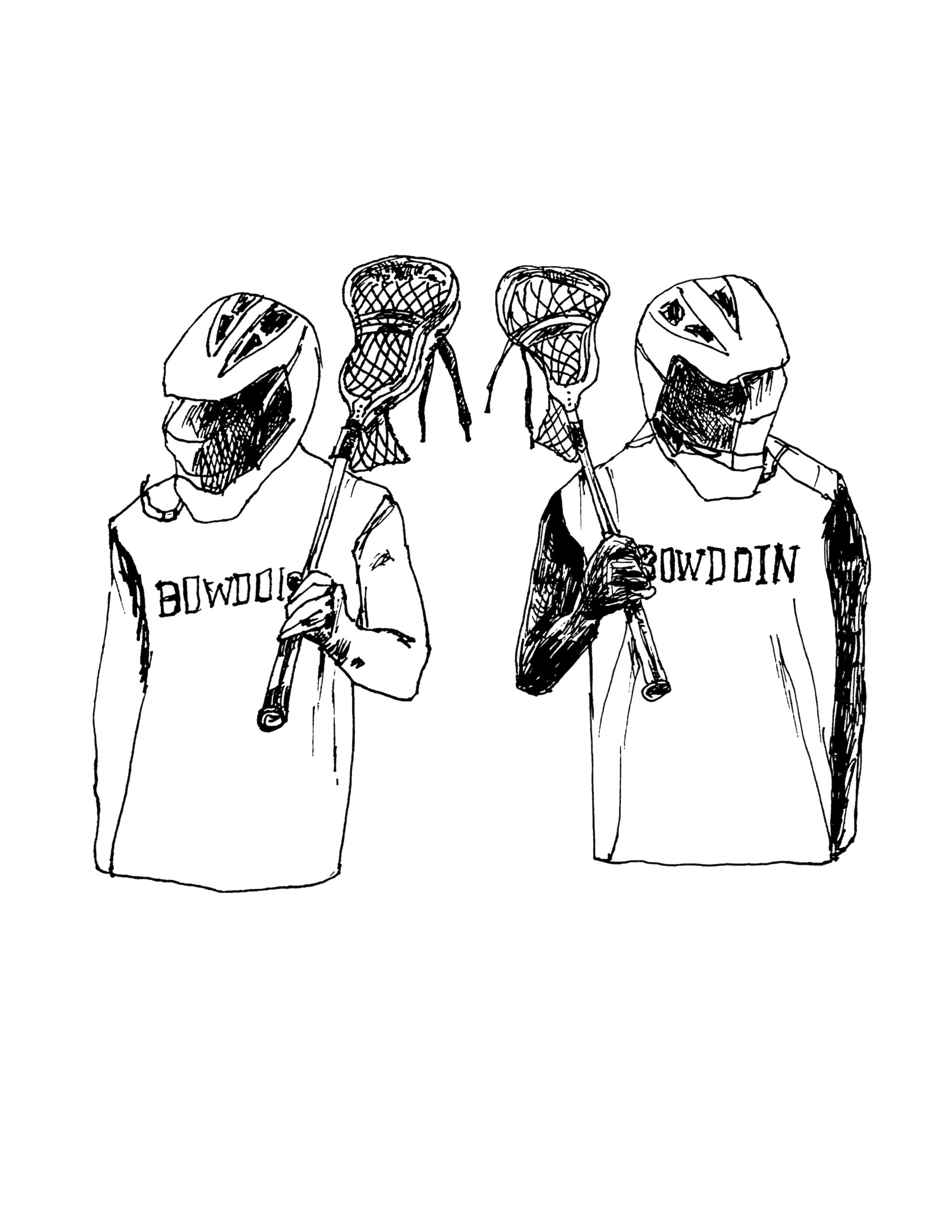OPINION: What does ‘support’ really mean?
September 4, 2020
 This
piece represents the opinion of the author
.
This
piece represents the opinion of the author
.
 Dalia Tabachnik
Dalia TabachnikJust because I am the captain of my team and the leader of the Athletes of Color Coalition (AoCC), that does not guarantee that my team is exempt from problems surrounding race. While these problems have become more visible now, they are not new experiences. I came into this team being the only Black player, and in my three years on the team, only one other Black recruit has visited Bowdoin. Being the only Black player has made me feel like I stick out like a sore thumb. On top of that, the fact that there are no other Black recruits visiting has made me feel like my presence on this team is as rare as winning the lottery. The more I feel this way, the more I have convinced myself that I only made it to Bowdoin because my uncle went here.
To make matters worse, when I was a sophomore, a teammate called me the N-word at a team gathering. Although it was supposedly in a friendly manner, no one understood or came to my support when I was visibly upset. Because no one felt the need to address it, I had to take it upon myself as the only Black person in the entire team house to inform them that using the N-word in any form is unacceptable. Even after this encounter, there was no follow-up discussion about the N-word or other derogatory terms that our team frequently used.
A few weeks later, our team hosted a group of middle school boys from the Harlem Lacrosse Organization. This organization aims to empower students of color in inner cities through lacrosse and academic support. For many of these kids, it was their first time away from home, and even more specifically, their first time ever experiencing a private, predominantly-white college. This was the equivalent to a fairytale for these kids. Despite the opportunity to inspire and empower them, one of my teammates felt it was appropriate to call these 13-year-old Black kids “hoodlums.” I was completely stunned. At this point, I could not believe this was what I was hearing from the players that were recruited alongside me. Since starting lacrosse in third grade, I have always been the only Black player on my team. Never in those years did a teammate make me feel uncomfortable because of my race. This was so new to me, and I had no idea what to do. Immediately, my first two options were to quit or transfer.
There are two very clear reasons why I stayed at Bowdoin. One is my parents. They told me that I could not take the easy way out and give up. They also told me to not let the ignorance of others dictate my success or deter my faith. That piece of advice told me that I had to stay and speak up against what was wrong.
The other reason is the Bowdoin Athletes of Color Coalition. The members of this coalition are why I’m still proud to call myself a Polar Bear and remain hopeful that Bowdoin will improve matters on race. Their constant support for one another and their mission to reform the lack of diversity is truly my pride and joy of still being at Bowdoin. I would not be at this school if AoCC did not exist.
As a rising senior on the team, the feeling of isolation has persisted. My first-year self never would have thought that I would remain this isolated from the team. Ascending through the leadership ranks of the team and becoming a senior captain gave me the illusion that people supported me. However, it is now clear that many members of my team value my athletic contribution and not my identity as a Black male. Even after the athletic department’s emphasis on engaging in team-wide discussions and education on race, our team has failed to rise to the occasion. Throughout the summer, we have only come together twice as a team to speak about race and issues of inclusion. When I raised the question about when our next talk would be and how the team would ensure that this is a consistent priority, I was told that talks are being strategically planned to not “overburden guys.” In response to my concerns, my team has made it clear that merely having a conversation about race is a “burden.” But have they ever imagined actually living as a person of color? As a Black male, I cannot choose when I do and do not engage with race. So, when you talk about not overburdening guys, please consider how I feel and recognize you have the privilege of choosing when conversations about racial disparities can be your priority.
Teammates and coaches can no longer claim to be allies just because we share the same Bowdoin uniform. They must strive to show that same support and allyship even if we are not on the same teams. This requires living a lifestyle that includes actions and behaviors that truly make people feel your support. I speak for most athletes of color when I say that it is clear that regardless of whether we are a captain or the newest member of the team, we do not feel the support of our teammates or coaches.
Enough is enough.
Kendall Rogers is a member of the Class of 2021.

Comments
Before submitting a comment, please review our comment policy. Some key points from the policy: